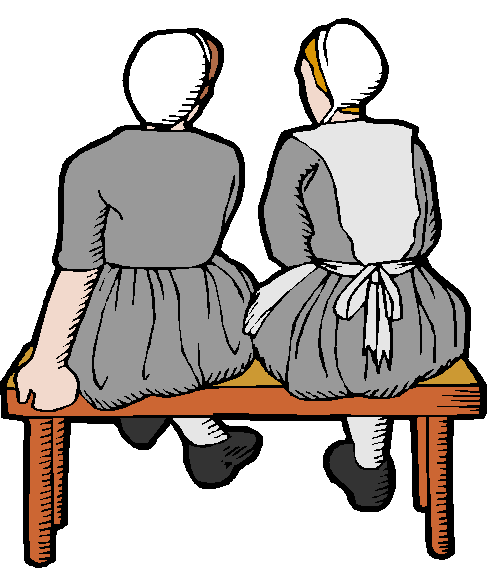 Colonial
Women/Republican Mothers
Colonial
Women/Republican MothersHistory 3070 MacKay
 Colonial
Women/Republican Mothers
Colonial
Women/Republican Mothers
| Date | Activities | Assignments |
|
Readings:
|
Discussion Who were:
|
Discussion foci:
Man and wife are one person, but understand in what manner. When a small brooke or little river incorporateth with Rhodanus, Humber or the Thames, the poor rivulet looseth its name, it is carried and recarried with the new associate, it beareth no sway, it possesseth nothing during coverture. A woman as soon as she is married, is called covert, in Latin, nupta, that is, veiled, as it were, clouded and overshadowed, she hath lost her streame . . . To a married woman, her new self is her superior, her companion, her master.
Married women could not own property. Their inheritances and any wages earned became the property of their husbands. They had no right to refuse the sexual advances of their husbands, nor did they have joint guardianship of their own children. (A husband could place his children in apprenticeships without the consent of their mother and, in his will, he could name a guardian other than the children's mother.) There were regional differences in the application of this principle. Some Southern colonies, for example, had very strict laws requiring an independent examination of a wife before a husband could sell property that had originated in his wife's family. Dower-a widow's right to the use (but not the ownership) of one-third of her husband's real property for the remainder of her own life-was also considered one ameliorating consideration. http://www.lexisnexis.com/academic/1univ/hist/ws/content-d8.htm